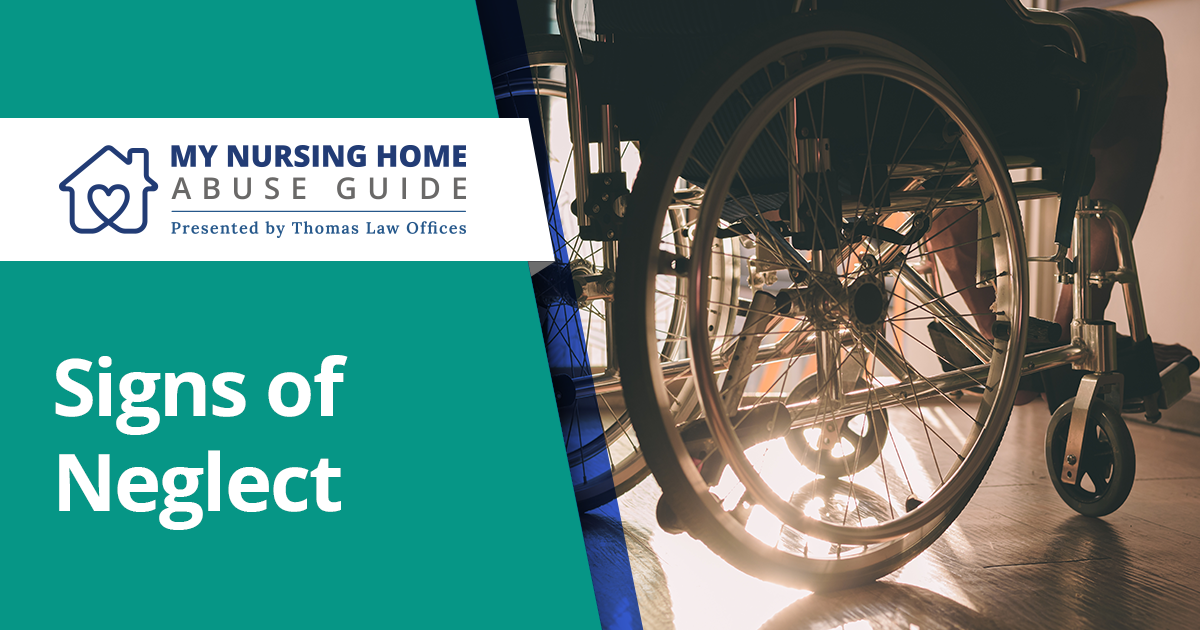Your Guide to Nursing Home Abuse & Prevention
Millions of elderly adults live in nursing home facilities.
Every one of them deserves to feel safe, protected, and respected.
Millions of elderly adults live in nursing home facilities.
Every one of them deserves to feel safe, protected, and respected.

Neglect is a serious concern. The National Library of Medicine defines neglect as “the refusal or failure of a caregiver to fulfill his or her obligations or duties.” And according to Ballard Brief, over 64.2% of nursing care staff reported they had committed some form of abuse in the past year.
Often, this is due to the poor patient-to-staff ratios and undertraining of staff, the main contributors to these problems. In other cases, the staff member may lack the empathy to provide residents with the care and respect they deserve. However, when you leave a loved one in the care of an assisted care facility, you expect their needs to be met.
Neglectful behaviors are defined as a disregard for the health and safety of an individual and can continue for years without any intervention from friends or family members. For that reason, spotting the signs of nursing home neglect is important to get help for these residents.
Neglect in nursing homes is a serious issue that can lead to significant physical and psychological damage to residents. Unfortunately, these cases of nursing home abuse go unreported according to the United States Justice Department.
You will want to be aware of what to look for to ensure the safety and well-being of your loved ones. Here are some key signs of nursing home neglect:
Residents in nursing homes often need help with personal hygiene. If a resident’s hygiene starts showing signs of deterioration, it could be a sign of neglect.
You will want to look for a few visible signs, such as:
Sometimes, these issues could be a one-off issue. However, if it is happening consistently, that could indicate a problem.
Poor hygiene can lead to skin conditions and serious infections.
When the resident is in their room, it should be a clean and safe space. Dirty clothing and bedding, unsanitary bathroom areas, or garbage in their room may be another indicator of neglect.
Not only do these conditions create a dangerous environment for the resident, but they can also contribute to widespread issues throughout the facility. These unsanitary conditions can lead to an increase in insects and rodents.
If those infestations are left untreated, they can spread diseases to other residents in the home.
Over time, it is natural for older residents to lose mobility. However, it is up to the caregivers and other staff members to assist with exercise and movements. If they don’t perform these duties, residents can experience mobility loss. In turn, that can contribute to muscle atrophy and other health issues.
Regular exercise is vital to maintaining a person’s physical and emotional health. When an individual is neglected, not only can that affect their independence, but it also leads to a decrease in their quality of life.
When someone is neglected, there are often signs of malnutrition or dehydration. Nursing home residents rely on others to make meals that meet their nutritional needs.
Additionally, these meals must also adhere to their specialty dietary requirements. If the staff is negligent and fails to provide a resident with adequate nutrition, it can cause physical symptoms.
An individual may experience:
When someone does not have the proper nutrition, it can lead to a weakened immune system. In turn, they can become susceptible to illnesses and infections. Malnutrition and dehydration are factors in a few other health issues, such as:
Behavioral changes in a nursing home resident can be an indicator of neglect. They may include:
Often, neglected residents may develop unexplained illnesses or injuries, primarily bedsores. All these issues can be a sign of neglect in a nursing home. Many times, these problems stem from improper medical care, rough handling, or even physical abuse.
Unexplained injuries or illnesses can lead to a decrease in the resident’s health and well-being. It can also lead to a lack of trust in the nursing home staff.
No, these signs do not always mean someone is being neglectful toward your loved one. They are indicators that could suggest that a loved one is being neglected but could also be due to other factors.
For example, behavior changes could result from a medical condition or medication side effects.
Also, poor personal hygiene could be due to a resident’s choice or a temporary lapse in self-care.
In any case, you will want to consider the overall context and pattern of behavior. If these signs are persistent or multiple signs present, it could indicate a problem.
Being vigilant and proactive can protect your loved ones from neglect in nursing homes. It’s always better to err on the side of caution when it comes to the welfare of our elderly family members.
If you have any doubts or concerns, seek help. There are many resources available to assist you, including elder care advocates, social workers, and legal professionals.
You can take action to stop nursing home neglect and abuse. We’re hopeful that knowing the signs of neglect in a nursing home will help you on your path to do that.
And if you’re ready to take action, please get in touch today.
This website was created and is maintained by the legal team at Thomas Law Offices. Our attorneys are experienced in a wide variety of nursing home abuse and neglect cases and represent clients on a nationwide level. Call us or fill out the form to the right to tell us about your potential case. We will get back to you as quickly as possible.
866-351-2504